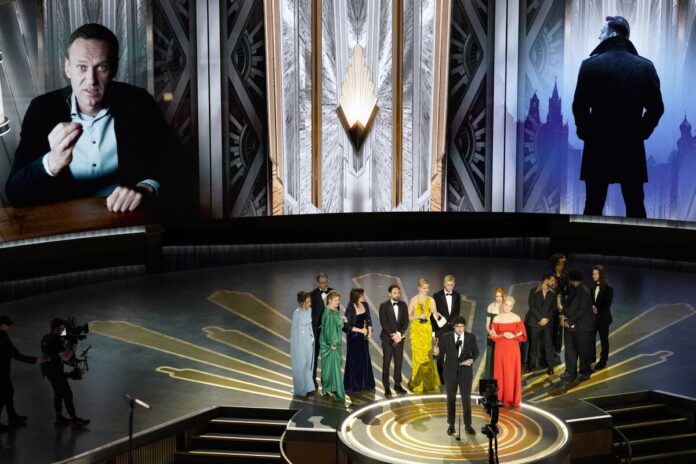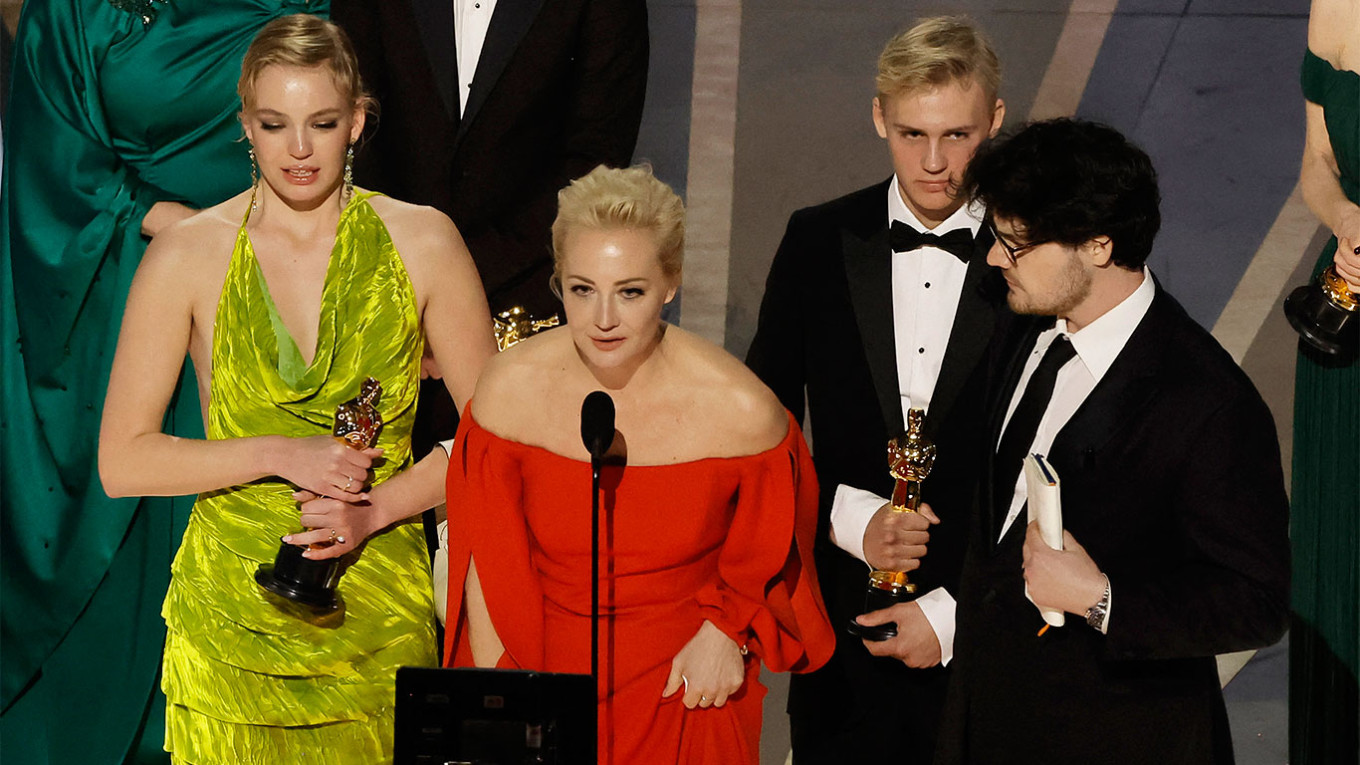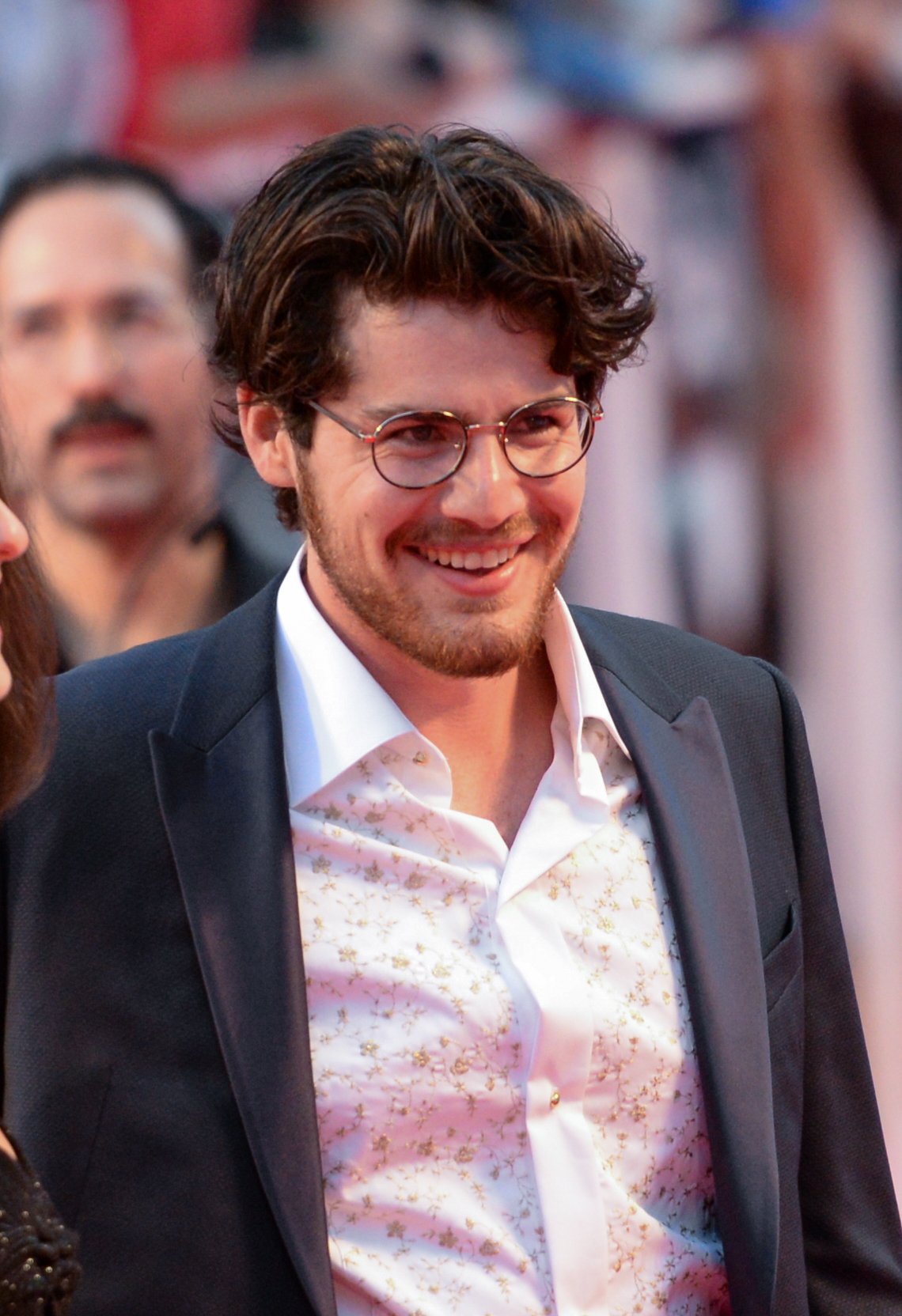
Although the report on Oscar-winning documentary feature film Navalny by Radio Free Europe/Radio Liberty (RFE/RL) does not directly relate to Lithuania, it is both important and interesting. Not only are the Oscars making headlines today – and likely all week, but the director of Navalny, Daniel Roher, is Canadian. Someone we should know about. Secondly, we are all likely familiar with the name of the jailed Russian opposition politician Aleksei Navalny, who is serving a 2 ½-year prison sentence for violating the terms of an earlier parole when he was medically evacuated from Siberia in a coma after suffering a near-fatal poisoning in August 2020 that he blames on Russian security operatives acting at the behest of Russian President Vladimir Putin. This is and should be interesting to Lithuanians and anyone who opposes the current authoritarian and aggressive Russian regime. Not surprisingly, the film has not been shown publicly in Russia.
 While accepting the award along with Navalny’s wife, son, and daughter, Canadian-born director Daniel Roher noted: “There’s one person who couldn’t be with us here tonight – Aleksei Navalny, the leader of the Russian opposition, who remains in solitary confinement for what he calls – I want to make sure we get his words exactly right – Vladimir Putin’s unjust war of aggression in Ukraine”. On stage at the awards, Navalny’s wife Yulia said “My husband is in prison just for telling the truth. My husband is in prison just for defending democracy”.
While accepting the award along with Navalny’s wife, son, and daughter, Canadian-born director Daniel Roher noted: “There’s one person who couldn’t be with us here tonight – Aleksei Navalny, the leader of the Russian opposition, who remains in solitary confinement for what he calls – I want to make sure we get his words exactly right – Vladimir Putin’s unjust war of aggression in Ukraine”. On stage at the awards, Navalny’s wife Yulia said “My husband is in prison just for telling the truth. My husband is in prison just for defending democracy”.
Navalny has blamed Putin for his poisoning with a Novichok-style chemical substance. The Kremlin has denied any role in Navalny’s poisoning.
 RFE/RL explains that Roher partnered with open-source investigative group Bellingcat to tell the story of what happened after the 46-year-old anti-corruption advocate survived the poisoning and tries to piece together who was behind it. Navalny’s original conviction is widely regarded as a trumped-up, politically motivated case. In March 2022, he was handed a separate nine-year prison term on charges of contempt and embezzlement through fraud that he and his supporters have repeatedly rejected as politically motivated.
RFE/RL explains that Roher partnered with open-source investigative group Bellingcat to tell the story of what happened after the 46-year-old anti-corruption advocate survived the poisoning and tries to piece together who was behind it. Navalny’s original conviction is widely regarded as a trumped-up, politically motivated case. In March 2022, he was handed a separate nine-year prison term on charges of contempt and embezzlement through fraud that he and his supporters have repeatedly rejected as politically motivated.

On the same day as the film’s world premiere in January 2022, Russia added Navalny and several of his allies to its list of “terrorists and extremists” in the latest in a series of moves by the authorities to stamp out opposition to Putin. Many of those designated have already fled Russia. Concern has been growing in recent months over Navalny’s health and his treatment in prison.
Navalny, who has been a persistent thorn in Putin’s side by exposing corruption and organizing pro-democracy protests, said on social media on February 1 that he was being placed in a solitary confinement cell for six months. Since January 1, dozens of lawmakers, lawyers, and physicians in Russia have urged Putin, the Prosecutor-General’s Office, and the presidential Council for Human Rights to intervene on behalf of Navalny.
 The film premiered in January 2022, and won Festival Favorite Award and Audience Award at the Sundance Film Festival, Critics Choice Documentary Awards, and audience awards at Hot Docs as well as the British BAFTA Award last month. Toronto-born director Daniel Roher got his start with CBC Short Docs, and his early films brought him to the border between Israel and the Gaza Strip, and to Kampala, Uganda. Navalny brought him face to face with Alexei, Russian opposition leader and activist.
The film premiered in January 2022, and won Festival Favorite Award and Audience Award at the Sundance Film Festival, Critics Choice Documentary Awards, and audience awards at Hot Docs as well as the British BAFTA Award last month. Toronto-born director Daniel Roher got his start with CBC Short Docs, and his early films brought him to the border between Israel and the Gaza Strip, and to Kampala, Uganda. Navalny brought him face to face with Alexei, Russian opposition leader and activist.
For Roher, making the film was “a fever dream, a non-stop roller-coaster”, and, he added, audiences are now connecting the dots between the poisoning and the current war in Ukraine. And that’s what’s really important.



























